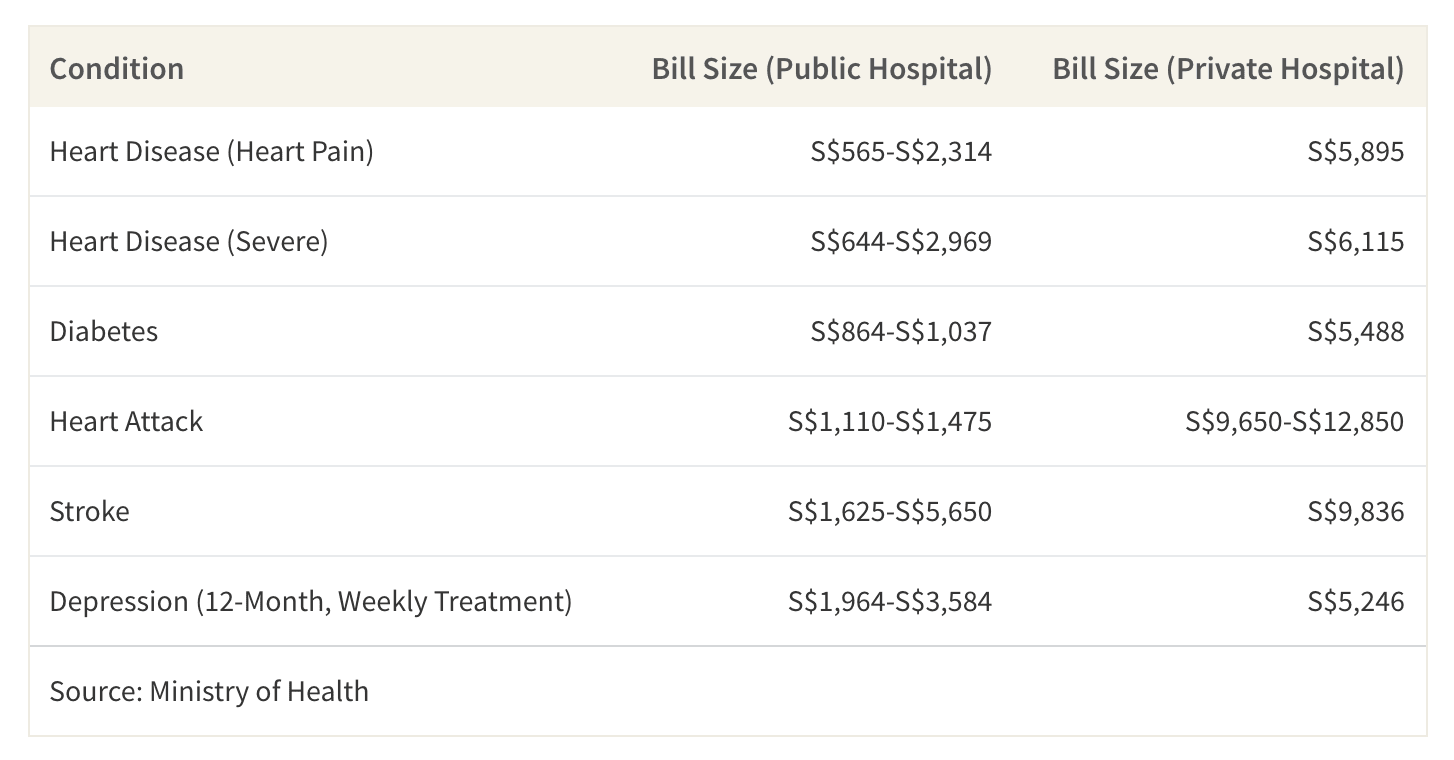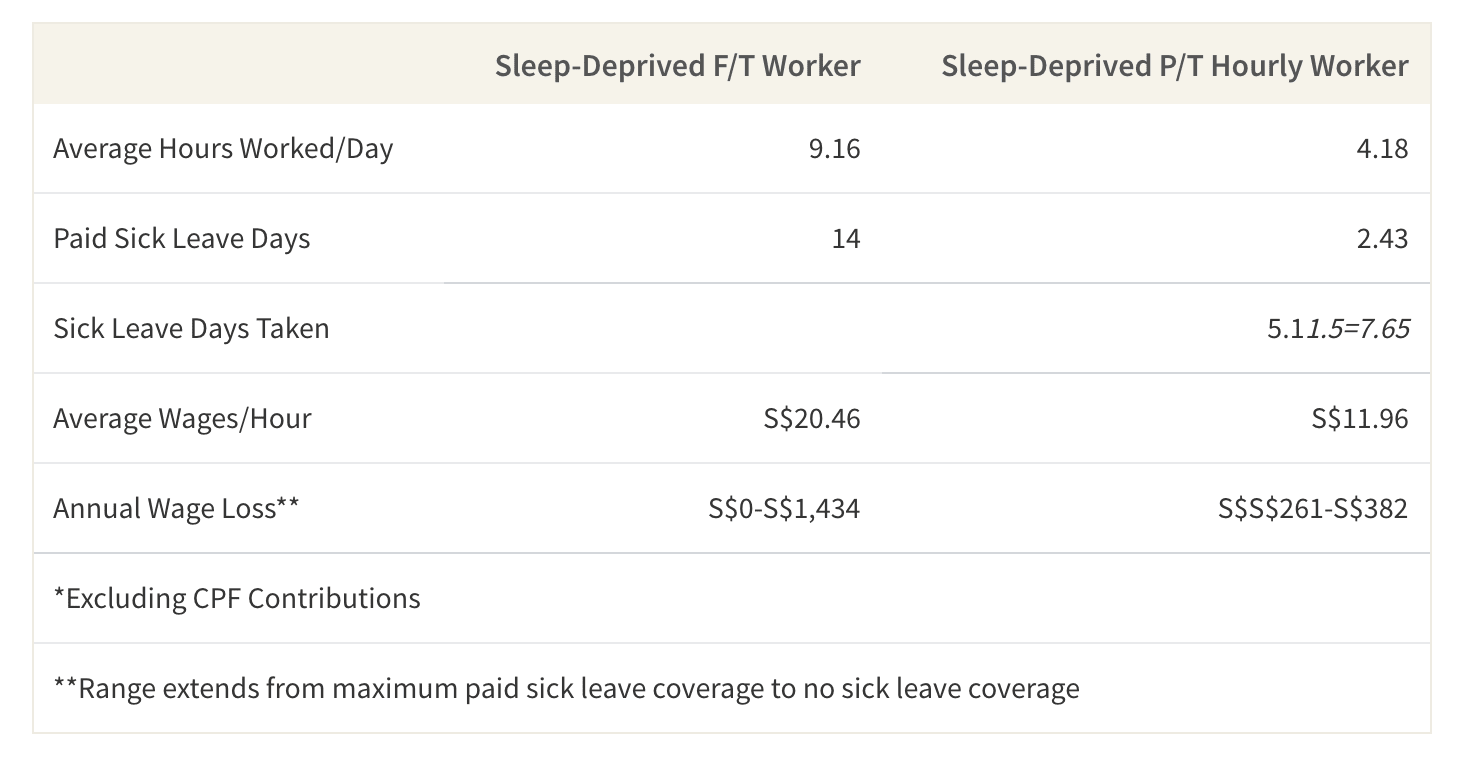3 Ways Sleep Deprivation is Costing You Money
In a recent survey by Philips, Singapore emerged as one of the top cities that is troubled by a persistent lack of sleep. Averaging 6.4 hours of sleep per night, Singaporeans sleep almost 2 hours less than the daily recommended amount. A majority of participants cited that their lack of sleep is due to stress. This makes sense considering that Singaporeans work some of the longest hours in the world, have a competitive academic culture and experience very high costs of living. However, it is not that Singaporeans are unaware that a lack of sleep is unhealthy—some Singaporeans simply cannot afford to sleep more due to familial, academic or job obligations. So while most of us know that sleep can affect our health and productivity, how much can it actually cost the average person financially?
Lack of Concentration Can Lead to Costly Car Accidents
After a poor night's rest that it's usually evident that we don't feel our best. Whereas a good night's sleep can result in drowsiness only until your first cup of coffee, a poor night's sleep can make it difficult to function throughout the entire day. This is because a lack of sleep can lead to a decline in cognitive functioning including slower reaction time, short-term memory loss and poor concentration. Unfortunately, when these lapses in cognitive efficiency occur, they can have dangerous and costly ramifications, particularly for drivers. For instance, a drowsy driving accident in May of 2018 led to jail time a 5-year license suspension, after a sleep-deprived driver hit and killed a woman.

Because the driving accident was due to the driver's own sleep-deprived negligence and could have been prevented, it can be likely that his car insurance wouldn't have paid out for the damages. This means the driver may have been wholly responsible for his lawyer fees and damages paid to the third party. Furthermore, after his license suspension is over, his car insurance premiums could be at least S$1,500 more expensive. This is because he will most certainly have demerit points and lose any NCD discount he had accumulated before the accident. Even in a much more common and less serious scenario like a fender bender, you would still have to claiming against yourself, which can result in an NCD drop of at least 10% and higher insurance renewal rates. Lastly, any jail time can also result in wage loss. For instance, a 3-month jail sentence can equal an average loss of S$12,696 in wages and CPF contributions (using median monthly wage of S$4,232).
Additional Health Problems Increases Medical Bills
A lack of sleep not only affects you mentally, but it can increase your risk for physical ailments. Sleep deprivation also serves as a type of domino effect of poor health choices, ranging from a lack of exercise due to exhaustion to overconsumption of sugar and alcohol. Furthermore, since in Singapore, sleep deprivation and stress go hand in hand, the risk for medical issues becomes even greater.

In fact, long-term sleep deprivation and chronic stress both increase the risk of getting costly medical conditions ranging from depression to a variety of heart conditions. These chronic conditions can not only result in costly hospital and outpatient bills, but they can also make it harder for you to purchase health or life insurance. This is because pre-existing conditions like depression, diabetes and heart disease will either be excluded from your health insurance policy or you will be charged much higher premiums. Simply put, insurers will be wary of insuring you if you come to them with a plethora of health problems since you will be more likely to file claims. Furthermore, these conditions could last years, so your medical costs will increase not just on a one-time basis, but annually.
Lack of Sleep Can Lead to Loss of Wages
Not getting enough sleep can also mean you can lose a part of your wages, which at first can seem contradictory considering a lack of sleep can stem from working long hours. What's more, hourly employees can see less wages since sleep-deprived employees take an average of 1.5 times more days off than employees who sleep eight hours a day. This increase in sick days can cost full-time employees up to S$1,400 in lost wages if they don't end up qualifying for paid sick leave—S$478 more than the average employee that takes about 5 sick days per year. Furthermore, hourly part-time employees can see wage losses between S$262 and S$382, S$127 more than the average part-time worker.

Furthermore, salaried individuals can also be impacted by a lack of sleep. Sleepy employees can cost corporations millions of dollars due to lost productivity. Thus, it is not unreasonable to assume that chronically sleep-deprived workers can be financially impacted via lower commissions and bonuses due to a decline in their performance.
How to Improve Your Sleep
80% of Singaporeans surveyed in the Philips study mentioned that they have not sought professional treatment for their sleep problems because of the high cost of sleep consultation and treatment fees. However, there are things you can do that are affordable and scientifically proven to improve your sleep. First, you can reduce screen time and caffeine before bed. It is also advisable to eliminate alcohol close to bedtime. This is because alcohol reduces the quality of your sleep by decreasing rapid eye movement (REM) sleep, making your already short sleep schedule that much less effective. If eliminating distractions doesn't work, you can try a white noise app, take melatonin (average cost of S$19 for 60 tablets) and find ways to destress before bed by meditating or doing something that soothes your anxiety.
If you are an employer or manager, it is advisable you take into consideration your employees' work hours and reduce the amount of work they have to do outside of normal working hours. While you may think that working longer hours results in increased productivity, it has been shown that it has the opposite effect. In many cases, the work being done late at night can easily be transferred to the next day without significant consequences.

